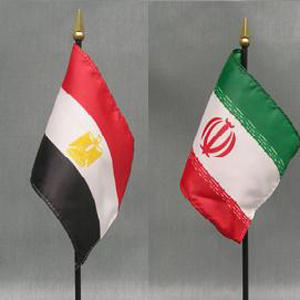The Egyptian Conservatism toward Iran

2. The Zionist and the American lobbies, and even some regional Sheikhs, are seriously concerned about the reestablishment of relations between Iran and Egypt. They think that cooperation between these two countries, considering the capacities they have, can harm their interests in the region. Therefore they won’t let Iran and Egypt establish their relations as easily as the revolutionaries and the Islamic Republic authorities desire.
3. In regards to the remarks of Nabil Al-Arabi, the Egyptian Foreign Minister, who said that the Persian Gulf was Egypt’s red line and the security of Persian Gulf countries is equivalent to the security of Egypt, we should consider the status quo. I believe that these remarks are a reaction to the current situation in Egypt rather than his personal beliefs. This is based on the recent Non-Aligned Group conference in Jakarta and the meeting between our foreign minister and Nabil Al-Arabi. They believe that Egypt is in a transition era which obligates certain positions. They believe that due to this situation, relations with Iran should not be expanded. The Egyptian officials believe that expanding ties with Iran should take place after the presidential elections and the establishment of a new government in Egypt. Therefore the paradoxes which are sometimes seen in the remarks made by Egyptian officials are due to this fact.
In other words, the concerns these relations bring about results in such remarks, and the Egyptians act in a conservative way in regards to this issue. Their reason is that they want to prove that a new Islamic Republic of Iran is not going to be created in Egypt; this is an idea promoted by some, and the Egyptians will try to prove it wrong. In addition, they want to make a firm decision about this issue. Nevertheless, the election has not been held yet and the new Egyptian president is not known. Relations with Iran will differ in the event that the Muslim Brotherhood, the leftist pan-Arabic trend represented by Amr Mousa, or the secular pro-Western trend represented by ElBaradei, gain power.
Therefore I believe that we shouldn’t react hastily to these remarks. We should let the Egyptian regime establish itself completely, and then work on expanding mutual and regional ties. We have to see what kind of government the upcoming Egyptian regime will be, and then decide or act accordingly.

